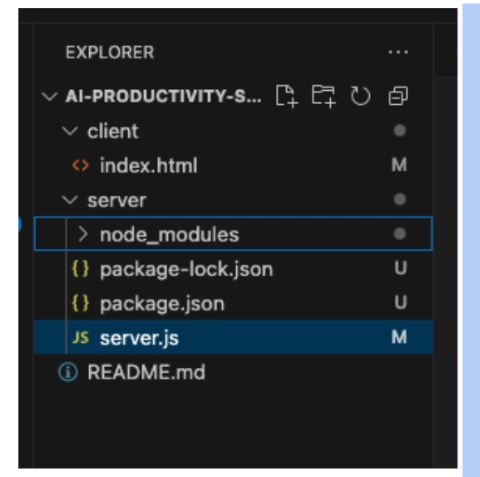Python for OSINT: Stalking the Internet Like a Pro
How Python is the ultimate weapon for open source intelligence in 2025 If you’re serious about harnessing the power of the internet to gather intelligence—whether you’re a journalist, a law enforcement officer, or a cybersecurity professional—you’re in the right place. Python isn’t just a programming language; it’s your secret weapon in the world of OSINT. In 2025, Python-based tools and scripts are revolutionizing the way we scrape websites, track identities, and even detect deepfakes. Ready to get started? Let’s dive in. 1. Why Python for OSINT? Python’s simplicity, versatility, and massive library ecosystem make it the go-to language for OSINT practitioners. Whether you’re extracting data from websites or using advanced machine learning to sift through millions of social media posts, Python is built for the job. Here’s why: Ease of Learning: Python’s clear syntax and extensive documentation lower the barrier for beginners while offering powerful features for experts. Rich Library Ecosystem: Tools like BeautifulSoup, Scrapy, Pandas, and OpenCV accelerate development. For example, check out this snippet to extract links from a webpage using BeautifulSoup: info: This simple script demonstrates how to gather hyperlinks from any website using Python. import requests from bs4 import BeautifulSoup url = "https://example.com" response = requests.get(url) soup = BeautifulSoup(response.text, "html.parser") for link in soup.find_all("a"): print(link.get("href")) Community Support: A vibrant community and countless tutorials make troubleshooting and learning new techniques a breeze. Integration Capabilities: Python can seamlessly work with APIs and third-party services, letting you pull data from multiple sources at once. For more curated tips and tools to enhance your Python skills, check out Python Developer Resources - Made by 0x3d.site: Python Developer Resources - Made by 0x3d.site A curated hub for Python developers featuring essential tools, articles, and trending discussions.

How Python is the ultimate weapon for open source intelligence in 2025
If you’re serious about harnessing the power of the internet to gather intelligence—whether you’re a journalist, a law enforcement officer, or a cybersecurity professional—you’re in the right place. Python isn’t just a programming language; it’s your secret weapon in the world of OSINT. In 2025, Python-based tools and scripts are revolutionizing the way we scrape websites, track identities, and even detect deepfakes. Ready to get started? Let’s dive in.
1. Why Python for OSINT?
Python’s simplicity, versatility, and massive library ecosystem make it the go-to language for OSINT practitioners. Whether you’re extracting data from websites or using advanced machine learning to sift through millions of social media posts, Python is built for the job. Here’s why:
- Ease of Learning: Python’s clear syntax and extensive documentation lower the barrier for beginners while offering powerful features for experts.
- Rich Library Ecosystem: Tools like BeautifulSoup, Scrapy, Pandas, and OpenCV accelerate development. For example, check out this snippet to extract links from a webpage using BeautifulSoup:
info: This simple script demonstrates how to gather hyperlinks from any website using Python.
import requests from bs4 import BeautifulSoup url = "https://example.com" response = requests.get(url) soup = BeautifulSoup(response.text, "html.parser") for link in soup.find_all("a"): print(link.get("href"))
- Community Support: A vibrant community and countless tutorials make troubleshooting and learning new techniques a breeze.
- Integration Capabilities: Python can seamlessly work with APIs and third-party services, letting you pull data from multiple sources at once.
For more curated tips and tools to enhance your Python skills, check out Python Developer Resources - Made by 0x3d.site:
Python Developer Resources - Made by 0x3d.site
A curated hub for Python developers featuring essential tools, articles, and trending discussions.











































































































































































![[The AI Show Episode 142]: ChatGPT’s New Image Generator, Studio Ghibli Craze and Backlash, Gemini 2.5, OpenAI Academy, 4o Updates, Vibe Marketing & xAI Acquires X](https://www.marketingaiinstitute.com/hubfs/ep%20142%20cover.png)




























































































































![[DEALS] The Premium Learn to Code Certification Bundle (97% off) & Other Deals Up To 98% Off – Offers End Soon!](https://www.javacodegeeks.com/wp-content/uploads/2012/12/jcg-logo.jpg)


![From drop-out to software architect with Jason Lengstorf [Podcast #167]](https://cdn.hashnode.com/res/hashnode/image/upload/v1743796461357/f3d19cd7-e6f5-4d7c-8bfc-eb974bc8da68.png?#)








































































































.png?#)

































_Christophe_Coat_Alamy.jpg?#)
 (1).webp?#)





































































































![Apple Considers Delaying Smart Home Hub Until 2026 [Gurman]](https://www.iclarified.com/images/news/96946/96946/96946-640.jpg)
![iPhone 17 Pro Won't Feature Two-Toned Back [Gurman]](https://www.iclarified.com/images/news/96944/96944/96944-640.jpg)
![Tariffs Threaten Apple's $999 iPhone Price Point in the U.S. [Gurman]](https://www.iclarified.com/images/news/96943/96943/96943-640.jpg)




































































































































